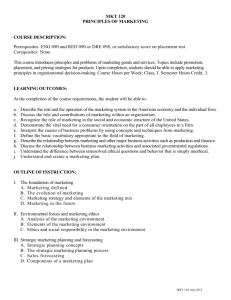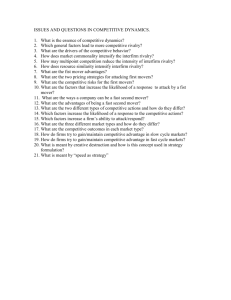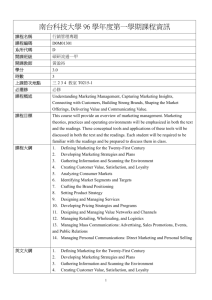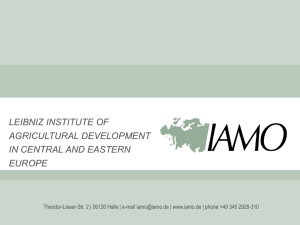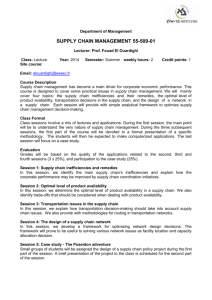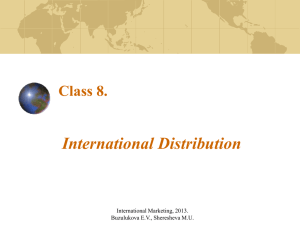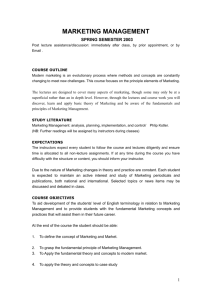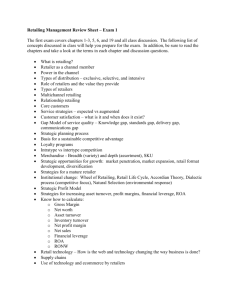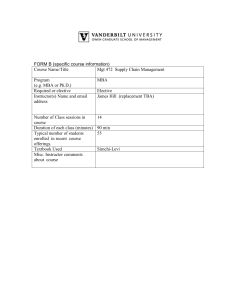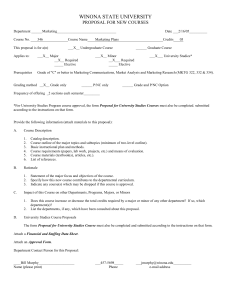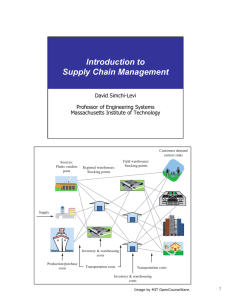Marketing Channel Management
advertisement
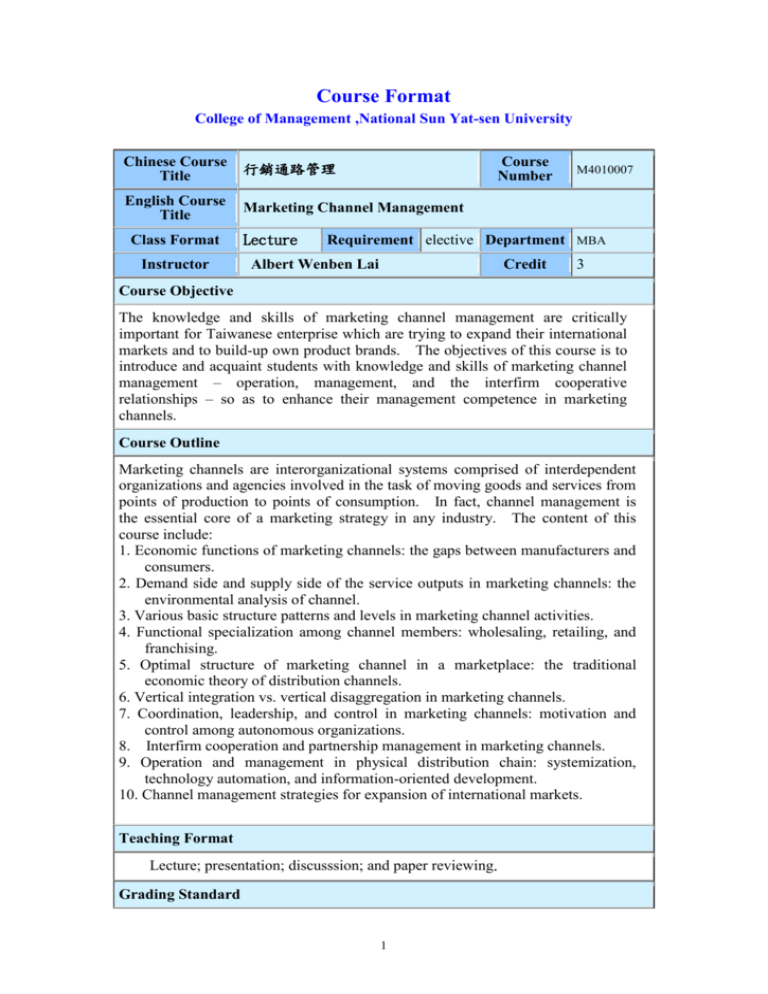
Course Format College of Management ,National Sun Yat-sen University Chinese Course Title 行銷通路管理 English Course Title Marketing Channel Management Class Format Instructor Lecture Course Number M4010007 Requirement elective Department MBA Albert Wenben Lai Credit 3 Course Objective The knowledge and skills of marketing channel management are critically important for Taiwanese enterprise which are trying to expand their international markets and to build-up own product brands. The objectives of this course is to introduce and acquaint students with knowledge and skills of marketing channel management – operation, management, and the interfirm cooperative relationships – so as to enhance their management competence in marketing channels. Course Outline Marketing channels are interorganizational systems comprised of interdependent organizations and agencies involved in the task of moving goods and services from points of production to points of consumption. In fact, channel management is the essential core of a marketing strategy in any industry. The content of this course include: 1. Economic functions of marketing channels: the gaps between manufacturers and consumers. 2. Demand side and supply side of the service outputs in marketing channels: the environmental analysis of channel. 3. Various basic structure patterns and levels in marketing channel activities. 4. Functional specialization among channel members: wholesaling, retailing, and franchising. 5. Optimal structure of marketing channel in a marketplace: the traditional economic theory of distribution channels. 6. Vertical integration vs. vertical disaggregation in marketing channels. 7. Coordination, leadership, and control in marketing channels: motivation and control among autonomous organizations. 8. Interfirm cooperation and partnership management in marketing channels. 9. Operation and management in physical distribution chain: systemization, technology automation, and information-oriented development. 10. Channel management strategies for expansion of international markets. Teaching Format Lecture; presentation; discusssion; and paper reviewing. Grading Standard 1 1. class participation 2. homework excercise 3. mid-term exam 4. term paper 20% 30% 30% 20% Reference/Text Text Book: Coughlan, Anne T., Erin Anderson, Louis W. Stern, Adel I. El-Ansary (2006), Marketing Channels, 7th ed, Prentice Hall. Reference: 1. Pelton, Lou E., David Strutton, and James R. Lumpkin, 2002, Marketing Channels: A Relationship Management Approach, 2nd ed., New York: McGraw-Hill. 2. Rolnicki, Kenneth (1998), Managing Channels of Distribution, Boston, MA: American Management Association. 3. Rosenbloom, Bert (2007), Marketing Channels: A Management View, NY: South-Western. 4. Simchi-Levi, David, Philip Kaminsky, and Edith Simchi-Levi, 2000, Designing and Managing the Supply Chain, New York: McGraw-Hill 5. Williamson, Oliver E. (1975), Markets and Hierarchies: Analysis and Antitrust Implications, New York, NY: The Free Press. Course content/ Progress / Documents The content of this course include: 1. Economic functions of marketing channels: the gaps between manufacturers and consumers. 2. Demand side and supply side of the service outputs in marketing channels: the environmental analysis of channel. 3. Various basic structure patterns and levels in marketing channel activities. 4. Functional specialization among channel members: wholesaling, retailing, and franchising. 5. Optimal structure of marketing channel in a marketplace: the traditional economic theory of distribution channels. 6. Vertical integration vs. vertical disaggregation in marketing channels. 7. Coordination, leadership, and control in marketing channels: motivation and control among autonomous organizations. 8. Interfirm cooperation and partnership management in marketing channels. 9. Operation and management in physical distribution chain: systemization, technology automation, and information-oriented 2 development. 10. Channel management strategies for expansion of international markets. 3
